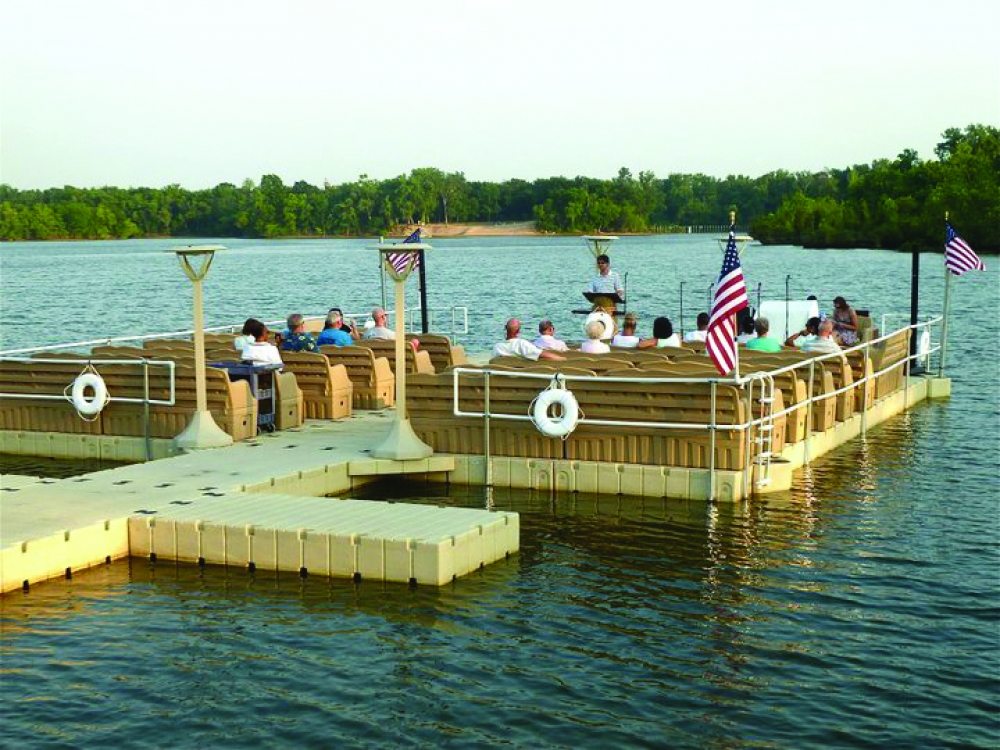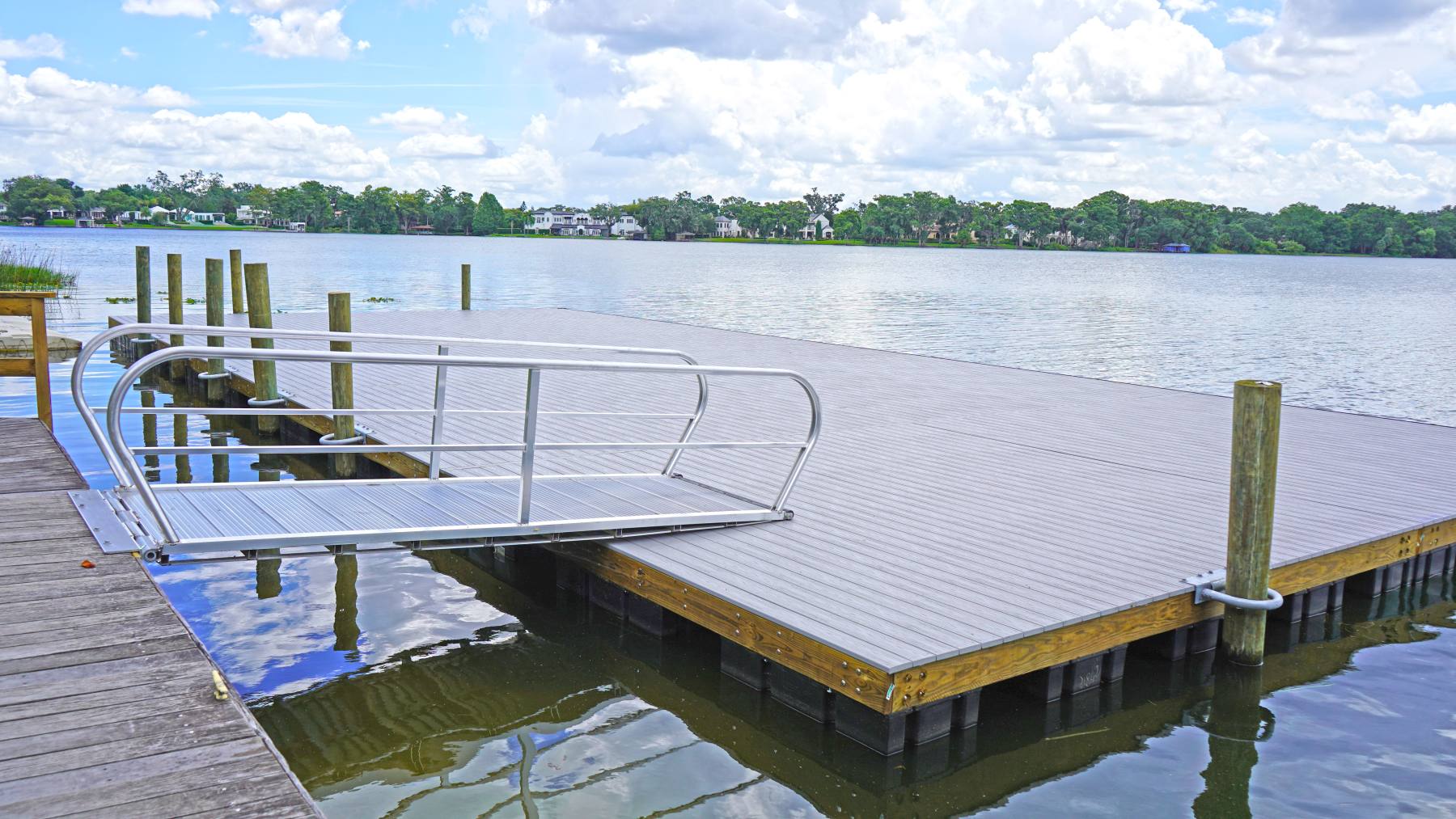Crafting Customized Solutions: Why a Floating Dock Builder is Essential for Distinct Demands
Crafting Customized Solutions: Why a Floating Dock Builder is Essential for Distinct Demands
Blog Article
Produce the Perfect Docking Option With Floating Docks
Floating docks present a functional option for a range of maritime demands, adjusting seamlessly to rising and fall water degrees and diverse vessel types. As we check out the vital elements that add to the efficiency of floating docks, several key variables pertaining to stability and maintenance will emerge, elevating inquiries about how to optimize your docking experience.

Advantages of Floating Docks
Floating docks offer many benefits that make them a perfect selection for numerous maritime applications. Unlike dealt with docks, floating docks rise and fall with the tide, guaranteeing regular availability for vessels.
Furthermore, floating docks are typically easier and quicker to mount contrasted to traditional set frameworks. Their modular design enables for simple setting up and disassembly, promoting upkeep and relocation when essential. This adaptability is especially advantageous for momentary applications or in atmospheres where conditions may transform.
Floating docks also tend to be much more ecologically pleasant, as they reduce disturbance to the seabed and bordering marine ecological communities. Their buoyant nature reduces the threat of damages to marine life, promoting a much healthier atmosphere. Additionally, these docks can be personalized to suit various vessel sizes, guaranteeing that they fulfill particular functional requirements - floating docks.
Ultimately, the mix of flexibility, simplicity of installation, and environmental factors to consider makes floating docks a very effective option for a wide variety of maritime demands.
Selecting the Right Products
Picking the appropriate materials for floating docks is important to guarantee durability, durability, and security. The option of materials directly impacts the dock's efficiency in different environmental conditions, consisting of direct exposure to water, sunshine, and potential wear from aquatic traffic.
Common materials utilized for floating docks consist of light weight aluminum, wood, and high-density polyethylene (HDPE) Aluminum is light-weight, corrosion-resistant, and calls for marginal upkeep, making it an excellent choice for longevity. Nonetheless, its initial cost can be higher contrasted to various other products.
Wood, while visually appealing and offering a conventional appearance, can be susceptible to rot and bug damages otherwise appropriately dealt with. Using pressure-treated wood or normally long lasting species like cedar or redwood can mitigate these concerns.
HDPE is a preferred option due to its resistance to UV rays and chemicals, along with being environmentally pleasant. floating dock company. It is readily available and lightweight in numerous colors, permitting for modification
Ultimately, the appropriate material option will rely on particular needs, consisting of budget plan, desired visual appeals, and ecological factors to consider. Cautious evaluation of these aspects will certainly bring about a durable and effective floating dock service.
Design Considerations for Security
When developing floating docks, ensuring stability is an essential element that can significantly impact their capability and safety. Stability in floating dock design is affected by different variables, consisting of buoyancy, weight distribution, and the arrangement of parts. An optimal buoyancy system must make use of products that provide adequate lift while minimizing weight. This balance makes sure that the dock stays above water, even under varying loads.
Weight circulation is crucial; evenly dispersing tons across the dock avoids turning and improves stability. Bigger styles can provide enhanced security, specifically in rough water problems, while longer docks might need added assistances to avoid sagging.
One more crucial factor to consider is the environmental influence, including wave activity and wind. Including functions such as sidewalls or skirting can help minimize the effects of ecological pressures, maintaining security in unfavorable conditions. Inevitably, a mix of thoughtful layout, material option, and understanding of environmental elements will certainly generate a floating dock that fulfills both stability and safety and security demands.
Setup Tips and Methods

Following, secure the required permits and follow neighborhood laws, which visit the site might determine setup techniques and ecological factors to consider. Engage a qualified specialist experienced in floating dock setups if required. Use top quality materials made for aquatic settings to boost toughness and durability.
When positioning the additional info dock, straighten it alongside the coastline to help with easy gain access to. Make sure that the anchoring system is robust, using cinder block or helical anchors to stabilize the dock against wind and wave activity. It's vital to represent seasonal water degree changes, consisting of potential ice activity in chillier climates.
During the installment, confirm the dock's floatation and security before finalizing the anchoring. Regularly evaluate the setup for any kind of indications of wear or damage. By following these pointers and methods, you can accomplish a secure, functional, and aesthetically pleasing floating dock installment that meets your demands.
Upkeep and Care Guidelines
Caring and keeping for floating docks is crucial to extending their life-span and guaranteeing risk-free use. Regular inspections ought to be performed to recognize any signs of wear, damages, or aquatic development. Look for cracks, loose fittings, or tarnished areas on the dock's surface, as these issues can endanger structural stability.
Cleaning up is essential. Use a pressure washer to eliminate algae, barnacles, and debris, which can build up over time. For persistent development, take into consideration ecologically pleasant cleaner that won't harm water life.
In addition, inspect the mooring lines and anchors frequently to ensure they are safe and totally free from corrosion. Change any torn or damaged lines immediately to preserve security.
During severe weather, such as tornados or freezing problems, take preventive actions. Safeguard the dock with added mooring lines and, if feasible, eliminate any type of detachable elements to avoid damage.
Verdict
In final thought, the execution of floating docks presents a effective and functional docking service suitable for various maritime applications. With correct installation Full Article and routine upkeep, floating docks can offer reliable and dependable docking experiences for a wide variety of vessels.
As we discover the necessary components that contribute to the effectiveness of floating docks, numerous crucial elements relating to security and maintenance will certainly arise, elevating questions concerning how to enhance your docking experience. Unlike fixed docks, floating docks surge and autumn with the tide, ensuring constant ease of access for vessels.When developing floating docks, guaranteeing stability is an essential aspect that can significantly impact their functionality and security. Security in floating dock style is influenced by different factors, consisting of buoyancy, weight circulation, and the setup of parts. Eventually, a combination of thoughtful layout, material choice, and understanding of ecological variables will yield a floating dock that meets both stability and security requirements.
Report this page